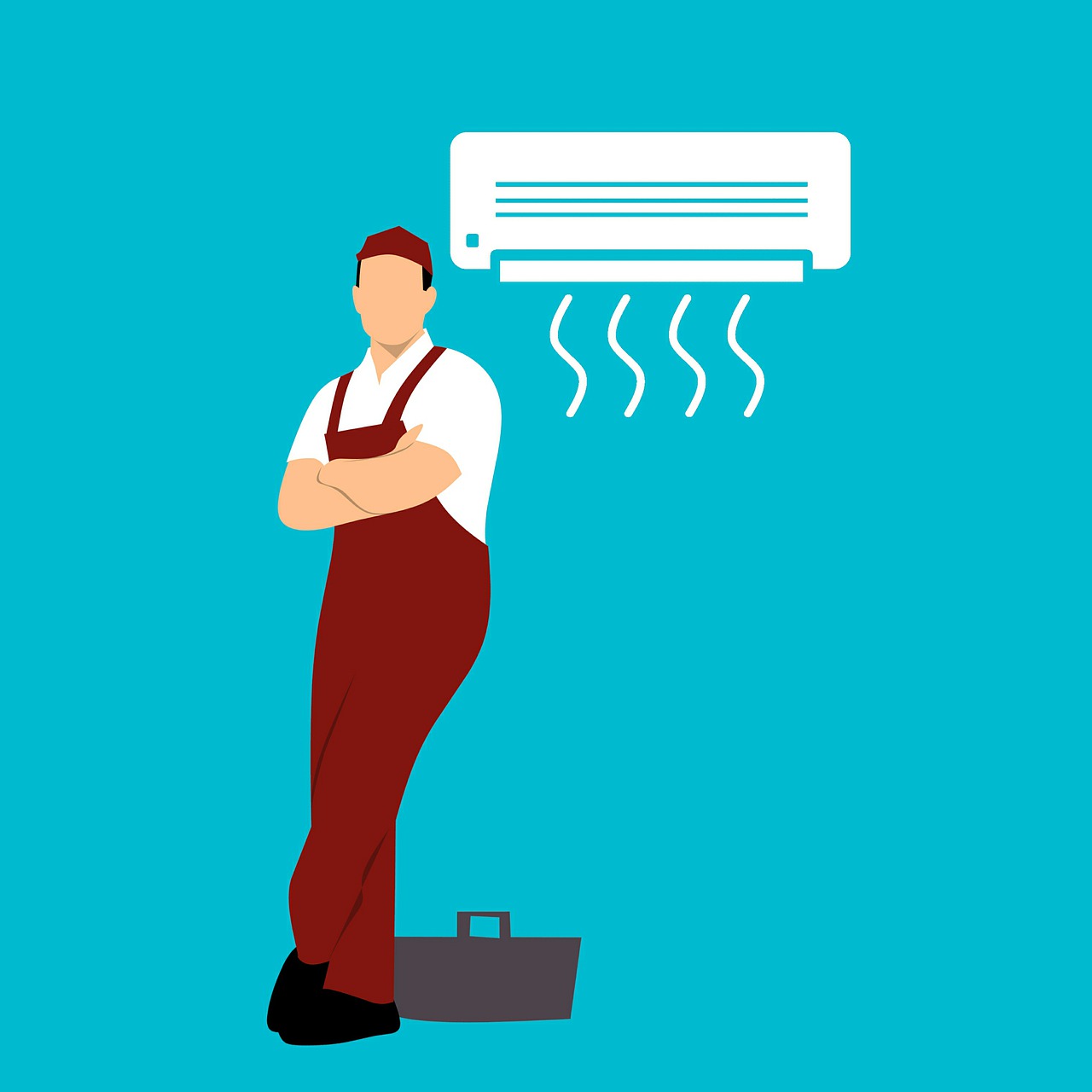Measuring the Cost: Can You Run AC Without a Filter?
Let's put the matter to rest early: no, you can't run an AC without a filter. And the reason isn't because it won't run. What happens, in fact, is much worse.
All that said, air conditioning filters aren't cheap. Given they're a routine cost, you might wonder, "Can you run AC without a filter?"
In short, forgoing the filter will result in a multi-pronged catastrophe, including a hot, humid building and thousands of dollars in repairs.
But maybe you require some persuading. Don't worry; we're prepared to convince you. Below, we'll explain how the AC filter protects AC systems and guards the health of building occupants.
What is an AC filter?
You've likely seen or held an AC filter at some point. It's rectangular, pleated, and has cloth-like material in the center. It may appear insignificant, but ensuring your AC is outfitted with a clean filter is crucial to your health and wallet.
So what does it do? It's a filter. So it does just that, filter. Ultimately, it removes all debris, dust, dander, and any unwanted harmful particulates from a building's incoming air.
First, the AC pulls air from outside and passes it through the filter, which is made of fiberglass or dense paper. The material is dense but porous, designed to remove air contaminants. But remember, as the AC runs, the filter becomes dirtier. The dirtier the filter, the more contamination that passes through.
Filter effectiveness is measured by a MERV rating, which stands for "Minimum Efficiency Reporting Value." These values range from 1-16, one being the lowest filtration and 16 being the highest, given they have the smallest pores.
So which is the right for your home? A 7 to 12 MERV rating is typical for residential and office settings. Filters with ultra-high ratings should really only be used in super sanitary settings, like hospitals. However, regardless of the MERV rating, the filter must be changed often.
What happens if I don't use an AC filter?
Maybe the question is still nagging you, "Can I run my air conditioner without a filter? My air isn't that dirty."
You can try, but only if you're prepared to suffer the consequences.
For your edification, below, we cover the main consequences of running an air conditioner without a filter.
Lowers indoor air quality
As air cycles from outside and into the ducts, debris of all types enters the airstream. There's only one thing standing between the air entering your lungs and that debris: your filter.
Without a filter, those harmful particulates are free to wreak havoc on the lungs. These particles include:
- Dust
- Mold/Mildew
- Pollen
- Pet hair
- Dirt
- Smoke
- Bacteria
The health effects can range from mild to terminal depending on the particulate. Some, like pet hair, can cause immediate allergic reactions, such as an itchy throat. Other finer particles, such as construction dust, can cause severe long-term health impacts, like lung cancer.
Most homes, apartment buildings, and office spaces already have poor indoor air quality, even with a filter. But removing the filter exposes occupants to even greater hazards.
Damage to the AC Condensor
Guess the main cause of AC breakdowns. Did you guess dirty filters? If so, you're 100% right.
Without an AC filter, all the dust, hair, and debris get into the vents, coating the evaporator coils. Then, when evaporator coils become coated, they freeze over because they struggle to absorb heat.
So what's wrong with a frozen coil? When frozen, the coils fail to push out cold air, which causes unwanted stress on the condensor because the indoor temperature can't reach the desired level. As with anything that works too hard and constantly, it wears down and breaks faster than usual.
Anyone who owns an AC unit knows that condensor repairs are costly, costing upwards of $10,000 for residential and commercial systems.
Clogged Ducts
Another issue that comes from eschewing the filter: clogged ducts.
Without a filter, the chance of clogs increases exponentially. These clogs restrict the airflow, causing the system to overheat. This results in the unit shutting off or continuing to run despite overheating, which leads to major damage.
Less effective output
Remember the frozen coils? Not only do they lead to a damaged condensor, but they make your AC have less effective cooling power.
As stated previously, the coils get caked in debris. This traps cold air within the system and keeps it from your room or building. The result is dealing with an AC that runs constantly but struggles to exhaust cool air.
Clogged Condensation Drain
Failing to install a filter also clogs the condensation drain, which removes the condensation from the air during the dehumidifying process. When the drain clogs, it's less effective, meaning humidity levels are higher.
But there's more. A clogged condensation drain also leaves the water to fall on the freon tubes, which leads to water damage and can cause significant long-term issues.
Higher energy bills
Energy bills are high enough. But just wait to open that bill after running the AC sans filter.
Without a filter, the AC runs harder and longer, leading to a cycle where the system constantly overheats and shuts off.
When an AC shuts down, it uses more energy because it works double time to return indoor temperatures to the number on the thermostat. Then, of course, the longer the AC goes without a filter, the bigger the clogs get, causing it to shut off even more frequently, adding to overall energy costs.
Sky-high maintenance costs
Mile-high energy bills are just the start of your woes when you choose to run without a filter. You'll also spend more money repairing the unit itself. Leaving the air conditioner on for too long without a filter can cause massive internal damages that rack up thousands of dollars in bills.
How long can you run AC without a filter?
Running an AC with no air filter in house is always unwise. At most, running the AC without a filter should be a temporary solution. If you must, running it filterless for one or two days probably won't lead to severe damage. But still, you will have dirtier air.
After this period, clogs can form. But remember, if you're contemplating running your AC unit without a filter, ensure the surrounding air quality isn't dangerous.
If the outdoor air has extreme dust, debris, smoke, or humidity levels, this can cause serious and near-immediate damage to the AC system and the health of those breathing the air it puts out.
The worse the quality, the sooner the non-filtered AC results in these damages.
Conclusion: Change your filter often
If you ask us, "Can you run an AC without a filter?" expect the same response every time: a bold, underlined "No."
Not only do you risk the health of building occupants, it leads to a host of unwanted outcomes, such as damage to the unit and higher energy costs. Because of this, the filter should be changed routinely and often.
Experts recommend changing air filters at least every few months or more, depending on the climate or if you live in an area with poor air conditions. For example, if you live with pets, near a construction site, or in a place with high levels of dust or humidity, you must change your filter more often.
If you need help getting started ensuring your AC always has a clean, proper filter, contact Filter King.
Filter King manufactures and provides high-quality filter products for AC units and furnaces. Our website has an extensive range of products, sizes, and MERV ratings.
Don't put it off a second longer. We'll help you find the right filter for your home or office and can even set you up with a filter subscription. These subscriptions help save on air filters and ensure the air you breathe is harm-free.

